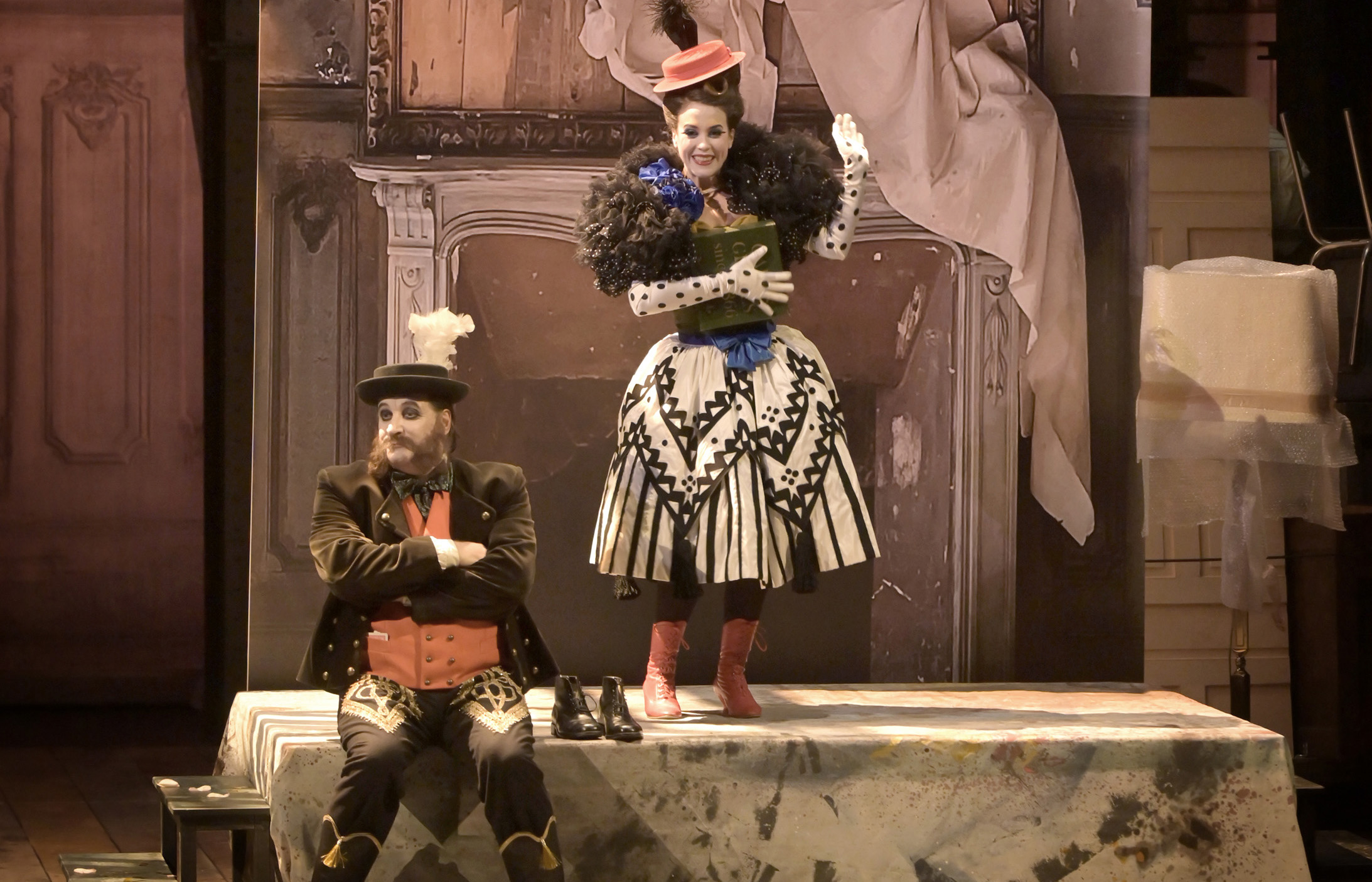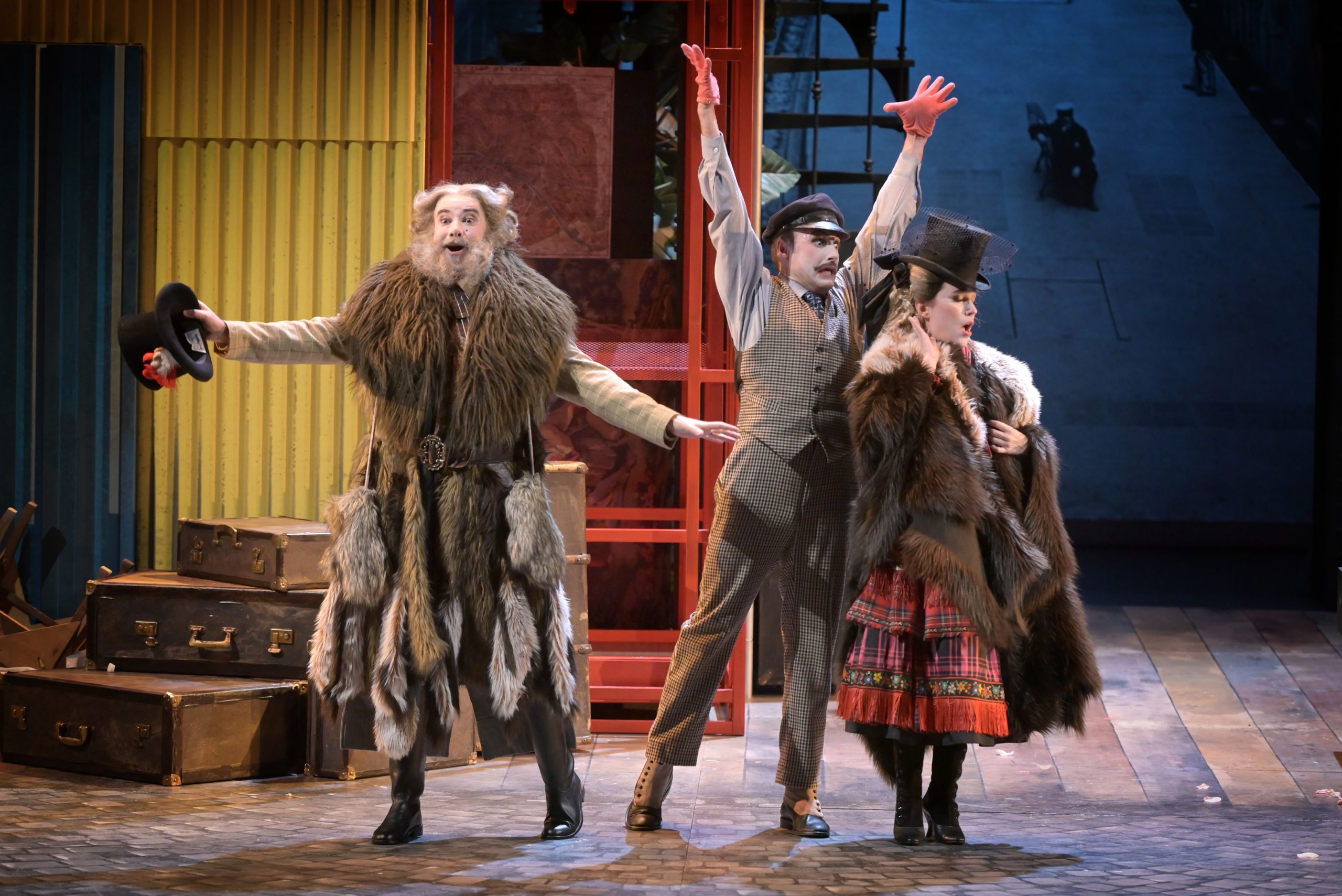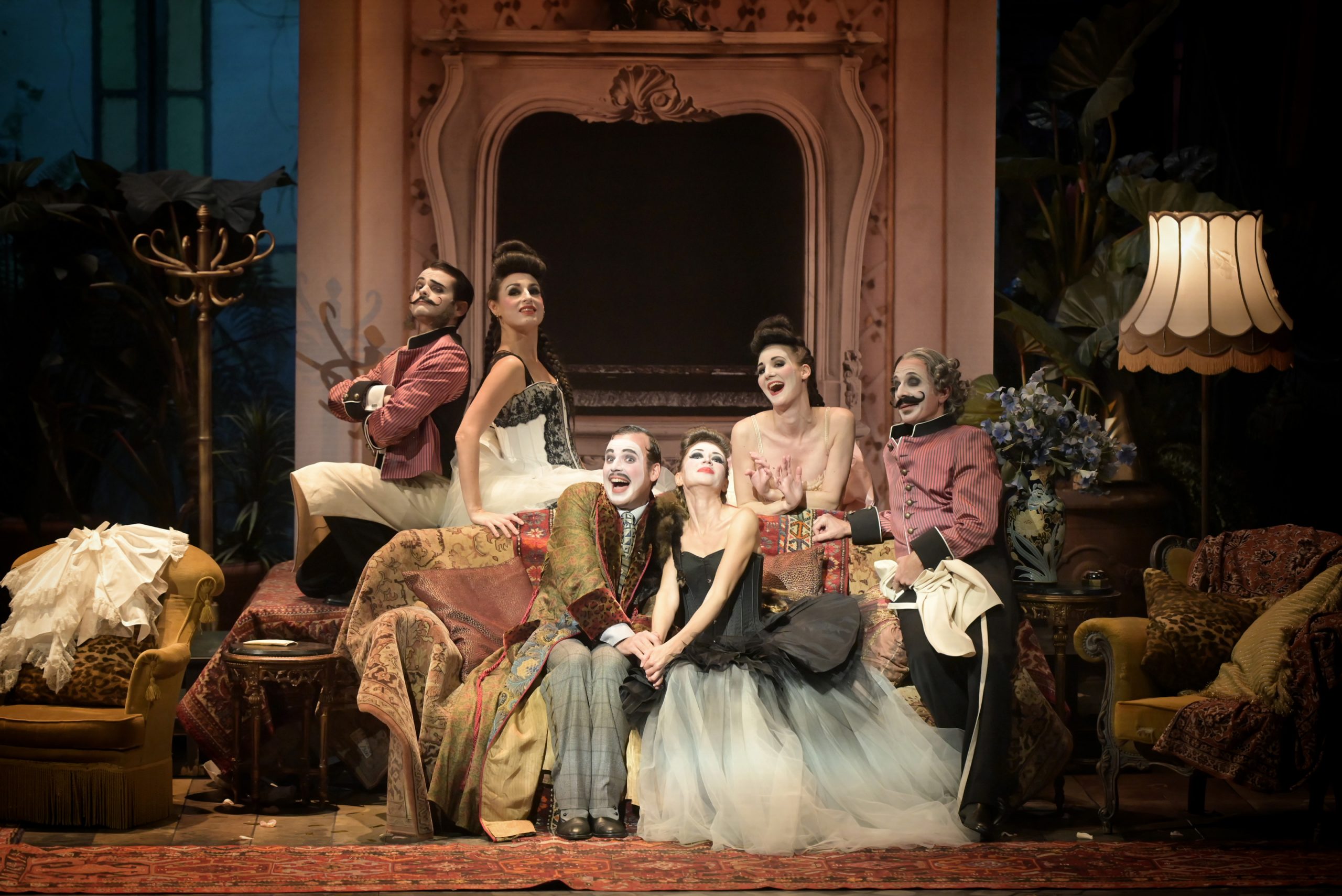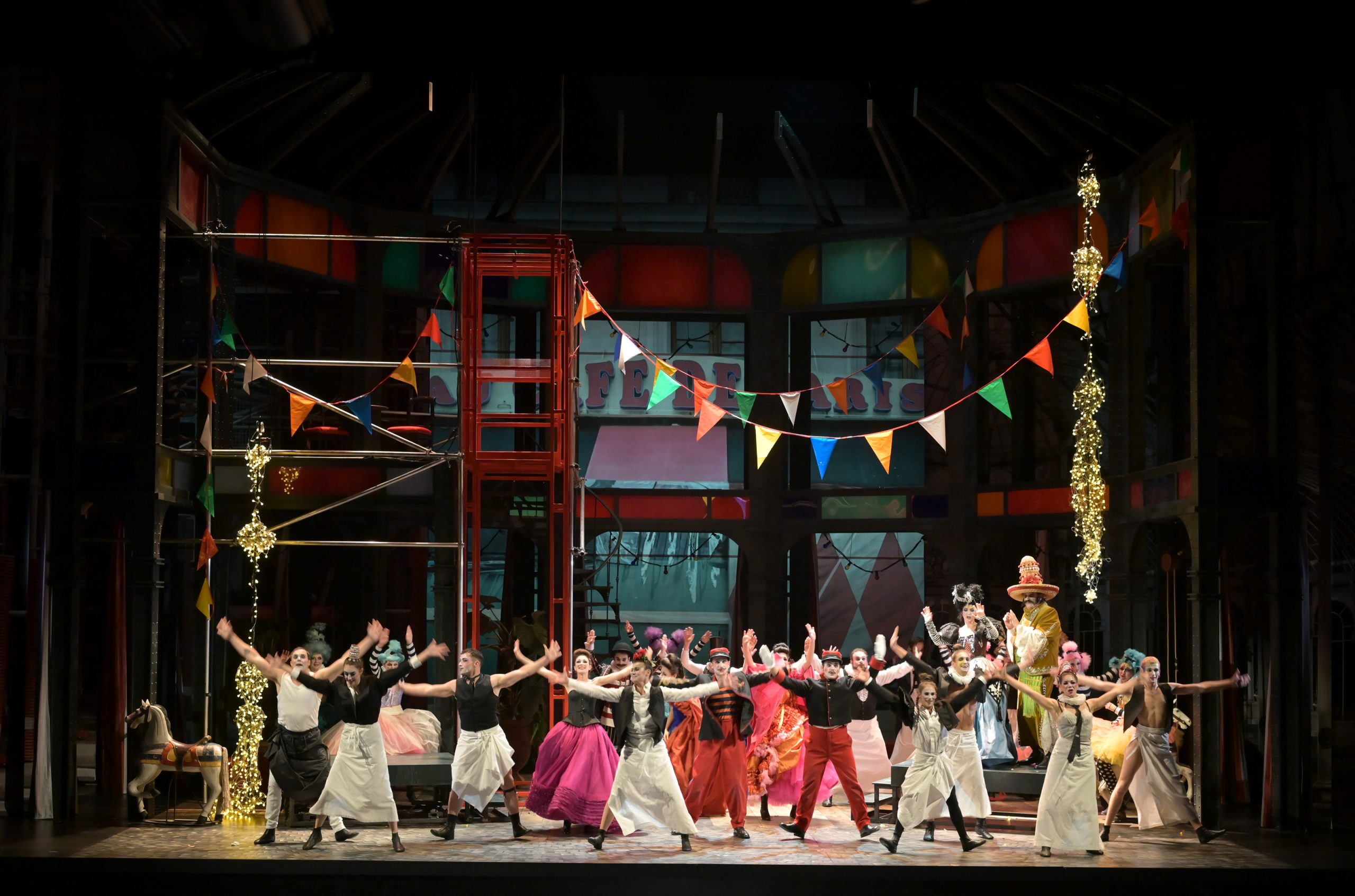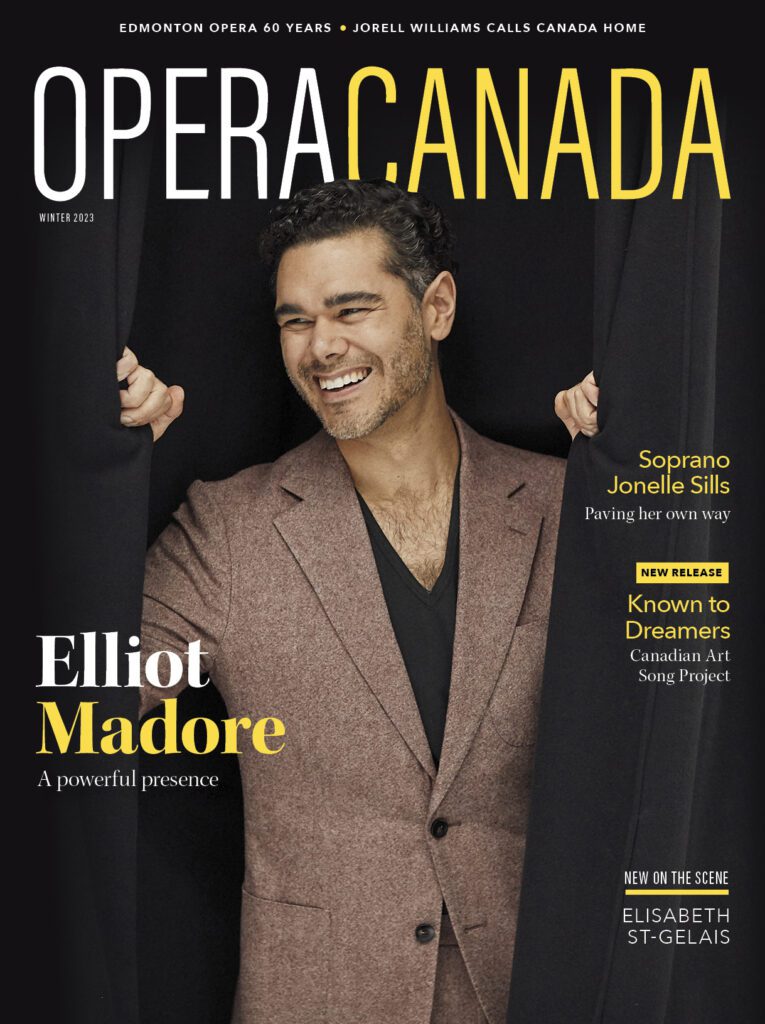Offenbach’s La Vie Parisienne is perfect holiday fare, bubbly, joyful, and whimsical, especially when designed and directed by French fashion designer Christian Lacroix. We know that the famous couturier is a magician of colours, a lover of shimmering fabrics, a sculptor of shapes and volumes, and not surprisingly, his costume designs for opera, theater, and ballet have been widely praised (recently Romeo and Juliet at the Comédie Française). But with this first foray into both stage design and direction, he has shown a surprising new dimension of his talent.
From the first scene, he draws a bittersweet picture of the decadent, festive Paris of the “Troisième République.” The costumes themselves already tell us a lot about the spirit of the period: the grisette, Gabrielle, a glove-maker, in mischievous laces and beads; the elegant demimondaine Métella, in silk and other frivolities. The young dandies Gardefeu, and Bobinet, have a seemingly endless array of disguises and the aristocrats freshly arrived from Denmark, the Baron and Baronne of Gondremarck, are comically decked-out in furs.
For the sets, Lacroix installs scaffolding, well-worn period furniture, and a few torn canvases in a Gustave Eiffel-like semi-circular structure. With some hasty transformations, these same props evoke a train station, then a private mansion before being revamped as a Parisian cabaret, where grand dames and “cocottes” convene to play tricks on their suitors and husbands. A rickety red cage/elevator at centre stage allows the actors to make precarious entries and escapes, thus adding to the excitement and general confusion. But Lacroix, true to his sense of lacework detail, synchronizes the action to the slightest glance, with very well-timed gags and surprises. But he never pushes to the absurd extremes like those of Australian director Barrie Kosky in his staging of Offenbach’s earlier work Orphée aux enfers in Salzburg in 2019. For Lacroix, the whole piece is absurd enough if you stick to the text.
The casting is brilliant, especially the feminine trio starting with Gabrielle, Florie Valiquette. The Canadian soprano is already a favorite with the Parisian public, after a stunning Barbarina in this same theatre in November 2019, not to mention her tremendous success in Le postillon de Lonjumeau at the Salle Favart in March 2019. Once again, she wins applause in this deceptively difficult role; her voice is vibrant in all its registers, and her diction crystal clear, even in the most tongue-twisting moments such as her show-stopping duo, “Je suis la gantière, je suis le bottier,” with the bootmaker Frick, the excellent Damien Bigourdan. French mezzo-soprano Eléonora Pancrazi sings Métella with voluptuous tone, and soprano Marion Grange, the Baronne, with vocal beauty and style.
The duo of dandies—Gardefeu, singing actor Flannan Obé, and Bobinet, tenor/baritone Marc Mauillon, is delightful. Both artists are incredibly versatile, atypical performers, and highly entertaining. Franck Leguérinel, is ideal as the Baron of Gondremarck.
But behind all this merry-making, some very serious musicologists from the Palazzetto Bru Zane in Venice, a foundation dedicated to the study of French music from the “Belle Époque,” are responsible for this unabridged, uncensored version of Jacques Offenbach’s great opera buffa which when first performed in 1866 already suffered numerous alterations and cuts. For the current production, based on the composer’s manuscript, some characters have been added or expanded, while new numbers appear such as the quintet of false aristocrats praising the Baron’s charms (N°19), or the aria, “Fabliau de la Baronne” (N°26). Others are lengthened, like the famous “Rondeau du Brésilien” also sung by the versatile Damien Bigourdan. But while sticking to the notes, these scholars nevertheless allowed for some fun, adding in quotations from Mozart’s Don Giovanni, notably when Bobinet sees his aunt Madame de Quimper-Karadec, the hilarious Ingrid Perruche, appear in the distance to the music of the Commendatore (Act II, Scene 5).
The Chamber Choir of Namur and the Musiciens du Louvre, under the direction of Romain Dumas, join in Lacroix’s joyful alchemy to make an evening of pure gold.
The production runs until January 9. Details and tickets over here.

